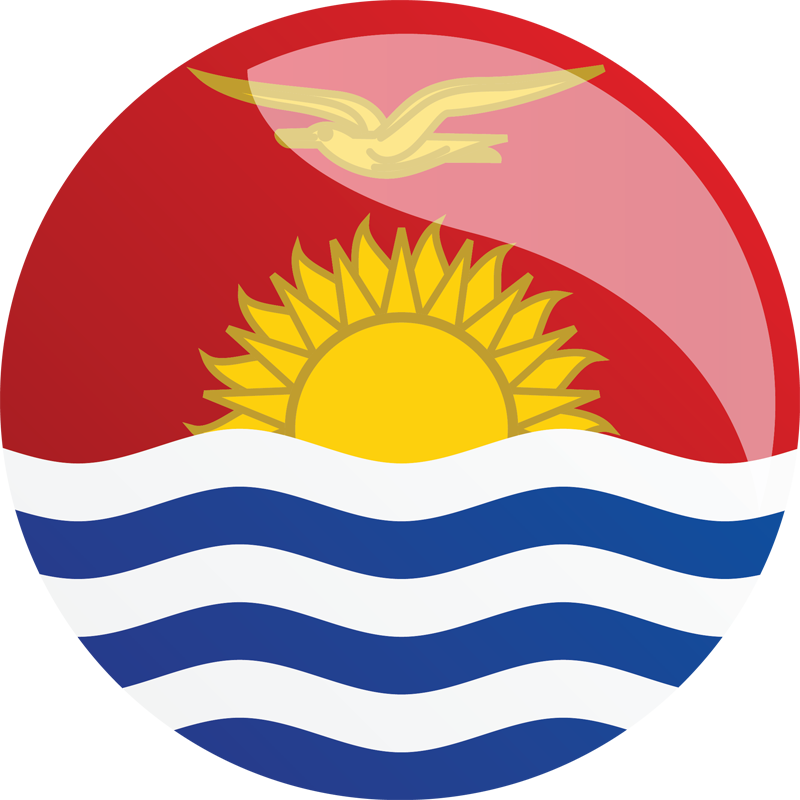Located about halfway between Hawaii and Australia, the Republic of Kiribati is comprised of 32 low-lying atolls—ring-shaped islands encircling lagoons—and raised islands spread over 3.5 million km2 of the Pacific Ocean.
The country’s unique geography, remoteness, and lack of scale has led to a divergence between islands in how people work. The capital city of South Tarawa houses half of Kiribati’s population and depends on a cash economy with few formal employment opportunities and its overcrowding has had an adverse impact on the fragile atoll ecosystem. Meanwhile, much of the population living on outer islands participate in a subsistence economy centered around fishing and coconut-derived copra cultivation. The country’s low-lying island geography makes it particularly vulnerable to climate change which can also jeopardize jobs and enhance constraints to economic growth.
With a significant youth population, Kiribati continues to experience limited job opportunities, and demand for training and skill enhancement far exceeds available opportunities. Overseas, Kiribati workers lack adequate work-readiness skills to remain competitive in the international labor market. As a result, many Kiribati want to build skills to help them find decent and inclusive work domestically and abroad.
The $29.1 million Kiribati Threshold Program will work to address these challenges through the Mwakuri Aika Nakoraoi Ibukin Maeuraoimi (MANIM) Project.
Financials
Financials as of June 30, 2025
Program Budget
Milestones
-
Signed:
September 25, 2023 -
Entry Into Force:
September 25, 2023
Program Projects
-
$25,912,000
Project Total Amount -
$23,404,501
Project Amount Committed -
$1,235,090
Project Amount Expended
The Mwakuri Aika Nakoraoi Ibukin Maeuraoimi (MANIM) Project is comprised of three activities:
- Ministry of Employment and Human Resource (MEHR) Capability Building Activity The MEHR project aims to improve the Ministry of Employment and Human Resource administrative capabilities to increase market and sector opportunities for I-Kiribati workers, connect under-represented groups to access employment, and strengthen the link between skills acquisition and employability.
- Worker Protection and Family Resilience Activity The Worker Protection and Family Resilience Activity works with MEHR to expand supports for current and potential I-Kiribati workers and their families as they search for, and secure overseas employment. Plans include providing a resource center as well as enhance pre-departure and re-integration support to prepare workers and their families for the challenges and opportunities of regional employment.
- Youth Skills Camps and Scholarship Activity The Youth Skills Camps and Scholarship Activity aims to equip Kiribati youth with critical work readiness skills such as oral and written communication, workplace behavior, and English language skills to enhance their preparedness and competitiveness in the international labor market. The activity seeks to provide three types of specialized study opportunities for Kiribati high school students: (1) an intensive 3-week English camp in Fiji, (2) an intensive 4-week English camp in the United States, and (3) a year-long scholarship at a high school in the United States. Through these MCC funded programs, students will gain language immersion and cultural enrichment vital in building work readiness skills.


